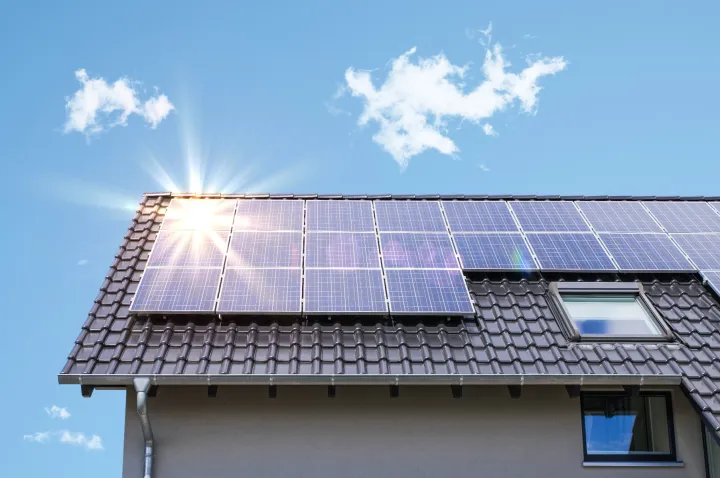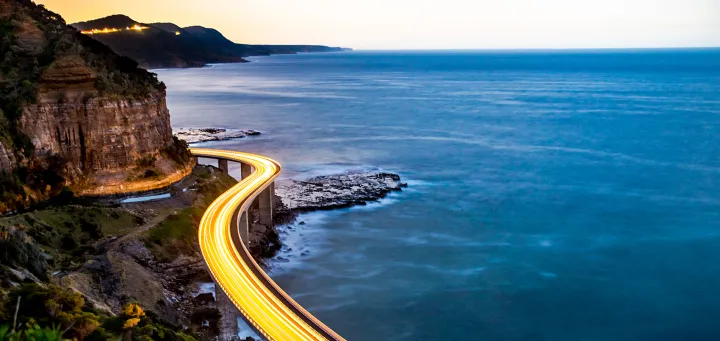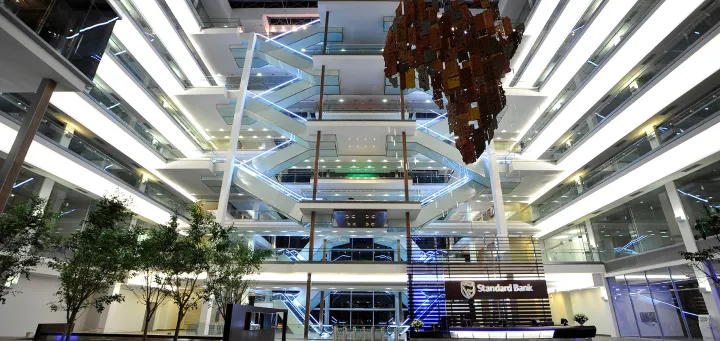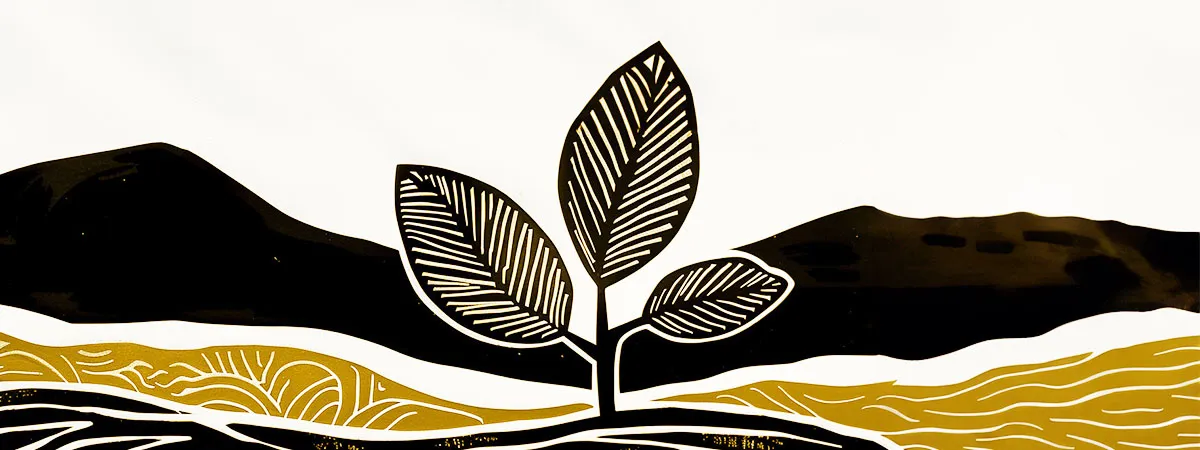THE GATHERING 2024
Democracy faces the abyss in 2024, we might just fall off the cliff, says Nobel laureate Maria Ressa
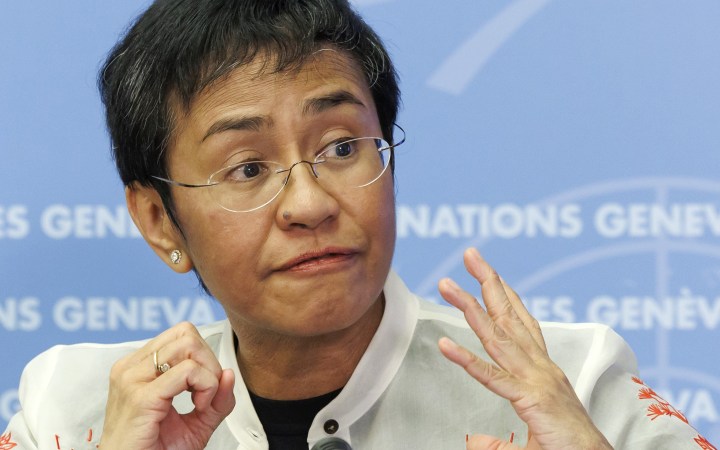
Maria Ressa, the Filipino-American journalist and Nobel laureate known for her work to defend democracy and combat disinformation, gave a video address at The Gathering Twenty Twenty-Four. Ressa said facts and journalism are vital to democracy, and warned that democracy is on the ballot in the coming elections.
The first step in protecting free speech in the age of disinformation, misinformation, fake news and populism is to understand that we now live in an “extremely fractured world”.
“That the public information ecosystem, our shared reality, has been torn apart, and that’s because of a lot of reasons but largely it’s the distribution system,” said Ressa in the video address at The Gathering on Thursday, 14 March 2024.
Born in 1963 in the Philippines, Ressa moved to the US with her family at the age of 10. She returned to the Philippines in 1986 after her education abroad and started her work as a journalist after the People Power Revolution.
Ressa explained that with the rise of the internet, major technology and social media companies have become the gatekeepers of news while journalism companies have gone out of business.
“What used to be traditional media no longer distributes and big tech’s way of making money actually works on personalising, taking you away from the shared space,” she said.
Ressa also cautioned against being cynical.
“It is healthy to be sceptical about what you’re seeing, but it’s incredibly destructive to be cynical. Because we live in a world where it becomes even more important to create communities of action, and the only way you’re going to do that is face to face, is eyeball to eyeball,” she said.
The concept of ubuntu, which can be roughly translated as “humanity towards others”, could also be beneficial.
“We go back to the core of who we are as people, the core of our humanity, and the societies that we build around it. Democracy has been the most successful so far,” said Ressa.
Read more in Daily Maverick: The Gathering 2024
Truth in a divided world and the role of journalists as they cover Gaza genocide
Ressa said our shared reality is based on the facts we agree to, but it should not be something we agree to because “we see, we live it, we know it”.
“I think the key part here is to go back to the shared reality, the shared space, and know the facts. After the facts, understand the context, understand the nuances that have been drained out of that shared space that we live in today,” she said.
Ressa said journalists should “call it what it is, be spot-on. Be aware that one death is one death too much” when covering the situation in Gaza.
“What is at stake in the world today is this idea of every individual having their rights covered in the Universal Declaration of Human Rights. Do we watch in silence?”
Facts and journalism vital to democracy
A journalist for more than three decades, in 2012 Ressa co-founded Rappler, a digital-only news site dedicated to promoting truth and democracy in journalism that is leading the fight for press freedom in the Philippines.
“The elevator pitch for Rappler is we build communities of action and journalism is the food we feed our communities […] Journalists report the facts, the food that you need, that you as a citizen of a democracy, that civil society needs in order to create a better world,” she said.
Ressa and Rappler’s critical reportage on former president of the Philippines Rodrigo Duterte’s drug war led to her enduring constant political harassment, arrests and multiple charges brought during his presidential term. Rappler’s battle for truth and democracy is the subject of the 2020 Sundance Film Festival documentary, A Thousand Cuts.
Ressa said the Philippines has a constitution patterned after the US and journalists are protected in ways that reflect the power that they derive from the people.
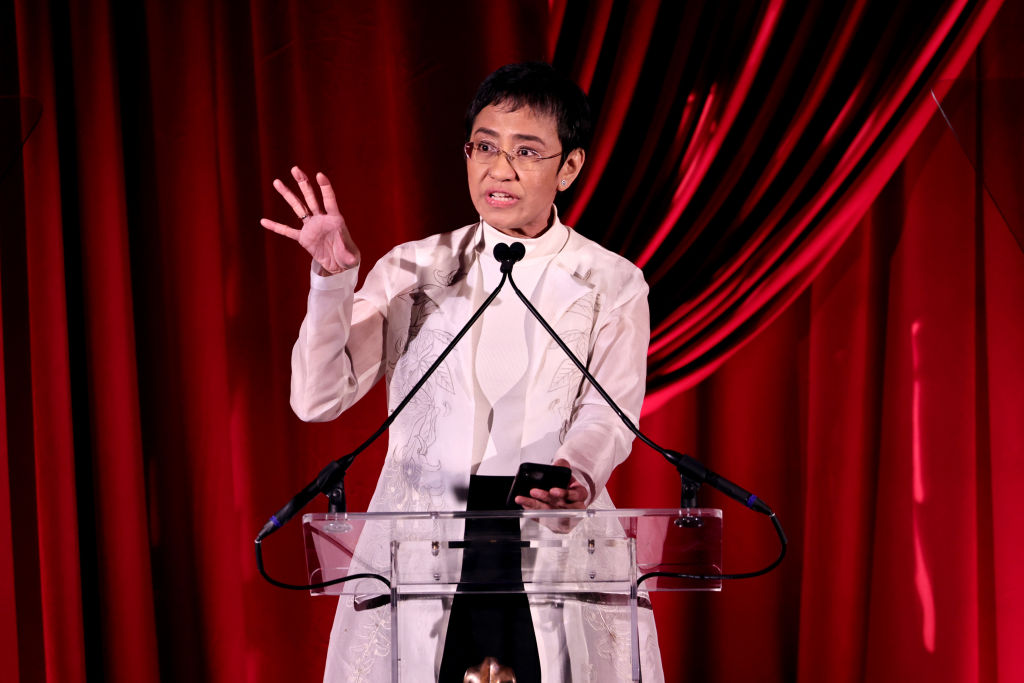
Maria Ressa speaks at the Clooney Foundation for Justice’s inaugural Albie Awards at New York Public Library on 29 September 2022. (Photo: Jamie McCarthy / Getty Images for Albie Awards)
“The strange thing right now is that again the distribution system has taken those protections away, and we are living in a time where you have seen more journalists globally harassed, jailed and killed – and that is a trend that has happened for the last decade. Not coincidentally, that trend goes hand in hand with the decline of democracy around the world,” she said.
Without knowing the facts, one would not know how to make things better, and without journalists one would not be able to hold power to account, said Ressa.
In October 2021, Ressa was awarded the 2021 Nobel Peace Prize jointly with Russian journalist Dmitry Muratov, in recognition of her “efforts to safeguard freedom of expression, which is a precondition for democracy and lasting peace”.
For her courage and work on disinformation and “fake news” she was included in Time magazine’s 2018 Person of the Year issue, was among its 100 Most Influential People of 2019, and has also been named one of Time’s Most Influential Women of the Century.
“Journalists help make sure that the guardrails are in place that the public can see. And I always say, you shine the light and when the light is there, people behave in much more civilised ways,” she said.
In 2022, Ressa published her book How to Stand Up to a Dictator: The Fight for Our Future, in which she considers the links between authoritarianism and social media, recounting her work exposing disinformation networks seeded by the Duterte government and consequent attempts to silence her.
2024: The ultimate election year
Ressa has spent years warning that social media giants like Facebook can be weaponised to influence election campaigns.
Research has shown how a social media disinformation campaign helped Duterte win office in 2016 and wield a subsequent reign of terror under the guise of a war on drugs.
By establishing the narrative that the Philippines had a massive drug problem, and that Duterte was the best candidate to fight this menace, disinformation helped legitimise an anti-drug crusade that degenerated into a war against Filipino citizens, and caused thousands of deaths.
At least 64 countries will head to the polls in 2024, including South Africa.
“I’ve long said 2024 is the tipping point for democracy. We’re looking at jumping off the cliff this year,” said Ressa.
Part of the trigger is not just the real-world problems every country faces, like the power outages and unemployment in South Africa, but also big tech being the connective tissue at the cellular level of a democracy going directly to the people, said Ressa.
Read more in Daily Maverick: 2024 elections
“In the old days, before big tech, we would have been able to pull people together, there would be a public debate, and hopefully a solution would be found […] as a government, it becomes more difficult to govern because there are many more forces that are insidiously manipulating people, and we’ve seen this geopolitical power doing that,” she said.
Ressa reiterated that at this age it becomes even more important to create the shared space.
“I think the key thing to remember for this moment in time as democracy faces this abyss, that we might just fall off the cliff, is that how it survives is not going to be up to someone else out there. It’s going to be up to you. It’s going to be what you’re going to do, how you’re going to mobilise your family and friends, your communities of action,” she said. DM
Daily Maverick has closed comments on all elections articles for the next two weeks. While we do everything in our power to ensure deliberately false, misleading and hateful commentary does not get published on our site, it’s simply not possible for our small team to have sight of every comment. Given the political dynamics of the moment, we cannot risk malignant actors abusing our platform to manipulate and mislead others. We remain committed to providing you with a platform for dynamic conversation and exchange and trust that you understand our need for circumspection at this sensitive time for our country.











